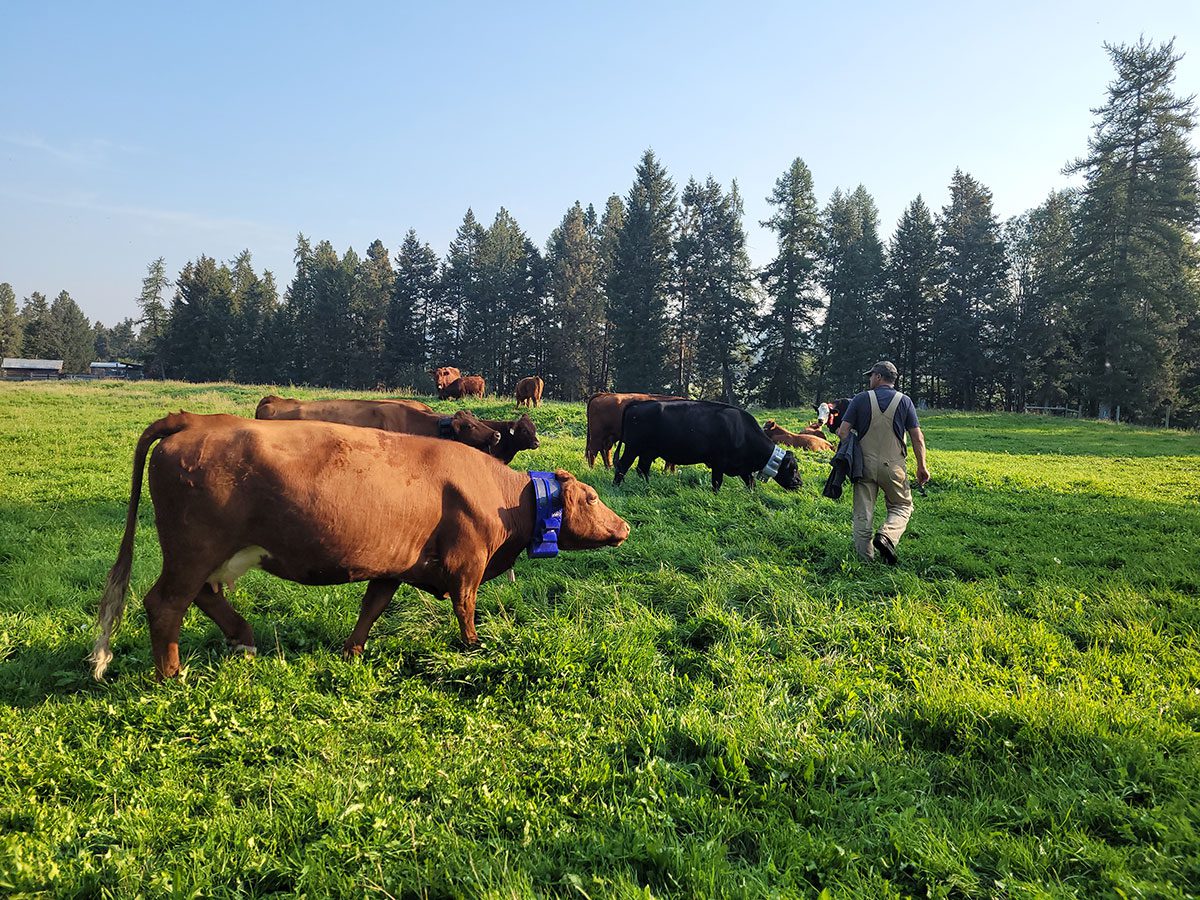Virtual fencing has considerable applicability relative to biodiversity benefits, with the most value centered around the stewardship and improvement of species at risk habitat by providing enhanced capabilities in managing the timing and application of grazing in critical habitat, and the removal of fencing infrastructure and the negative impacts it has on many species at risk.
This innovative project is focused on the development and testing of wearable technology to manage and track cattle movement. This represents a ‘made in Western Canada’ virtual fencing product with functionality both within and outside of cellular service, taking advantage of existing cellular and satellite infrastructure. Virtual fence boundaries will be established and maintained by the rancher/ranch manager through a programming interface via a combination s, where cattle location is updated in real time using cellular connectivity and data transfer. This concept has proven effectiveness internationally, but existing technology overseas is not transferable to Western Canada’s cellular network, or utilize different radio-telemetry-based technology requiring construction of dedicated towers. Cattle will be conditioned to recognize virtual fence boundaries using a combination of . Animal welfare is a priority consideration for this project. The intent is to ensure that technology is not only effective, but also adheres to high animal welfare standards, and to meet this objective the project team has partnered with the University of British Columbia’s Animal Welfare Program. This project is led by the BC Cattlemen’s Association, with hardware and data aggregation developed by A4 Systems, software and user interface developed by Two Story Robot, and cellular chips and network connectivity through existing infrastructure provided by TELUS. In 2021, Phase 1 of this project is focused on technology development and assuring utility on cattle in conventional range and pasture settings in British Columbia. This will see the development and deployment of 15 prototype collars for testing in partnership with Thibeault Ranch in Cranbrook, BC.
